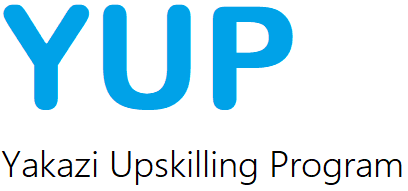How to Answer a Question You Don’t Know the Answer to in a Job Interview

Job interviews can be nerve-wracking, and sometimes, you may be asked a question that you don’t know the answer to. While this can feel like a major setback, it’s important to handle such moments with confidence and composure. Employers understand that no candidate knows everything, and how you respond to these situations can say more about your problem-solving and communication skills than an accurate answer ever could.
Here’s how you can effectively handle questions you don’t know the answer to in a job interview:
1. Stay Calm and Composed
The first thing to do when you don’t know the answer is to remain calm. Take a deep breath, pause for a moment, and gather your thoughts. Panicking or rushing to say something just to fill the silence can often make things worse. Employers appreciate candidates who stay composed under pressure. Remember, no one expects you to know everything.
2. Be Honest
It’s always best to be honest when you don’t have the exact answer to a question. Trying to bluff or provide incorrect information can hurt your credibility. You can say something like, “That’s a great question, but I’m not familiar with that specific concept. However, I am eager to learn and can quickly pick up new information, as I have done in the past with similar challenges.” This shows your honesty and willingness to learn, both valuable traits for any employer.
3. Demonstrate Problem-Solving Skills
If the question requires a technical answer or a specific fact, and you don’t know it, try to demonstrate how you would approach finding the solution. For example, you can say, “I don’t know the exact answer to that, but I would start by researching it using [mention a reliable resource or method] or by consulting with a colleague who has expertise in that area.” This approach shows your problem-solving abilities and resourcefulness, qualities employers highly value.
4. Redirect to Your Strengths
If the question is related to a skill or area that you don’t have experience with, try to redirect the conversation toward your strengths or related skills. You can say something like, “While I haven’t had experience with [specific task or tool], I’ve successfully handled similar challenges in [another context], and I’m confident that my ability to [mention transferable skills] will allow me to adapt quickly.” This allows you to turn the conversation in your favor and highlight your relevant skills.
5. Ask Clarifying Questions
Sometimes, the question may be unclear or broad, and asking for clarification can give you the opportunity to think more critically about your response. Politely ask the interviewer to elaborate on the question or specify what aspect they’re most interested in. This not only buys you time but also shows that you are thoughtful and want to provide the most relevant answer.
6. Follow Up After the Interview
If you didn’t have the answer during the interview but managed to find it afterward, consider following up with the interviewer. Send a thank-you email and include the answer you didn’t know at the time, demonstrating your initiative and enthusiasm for the role. This can leave a positive impression and show that you are proactive.
Conclusion
It’s completely normal not to know the answer to every question in an interview, and how you handle these moments can be just as important as answering correctly. By staying calm, being honest, and showing your problem-solving skills, you can navigate these situations with confidence.
If you’re looking to prepare more effectively for job interviews, Yakazi can help with interview coaching, giving you the tools and strategies to respond to any question with confidence. With Yakazi’s expert guidance, you’ll be ready to tackle even the toughest interview scenarios, ensuring you present yourself in the best possible light.

